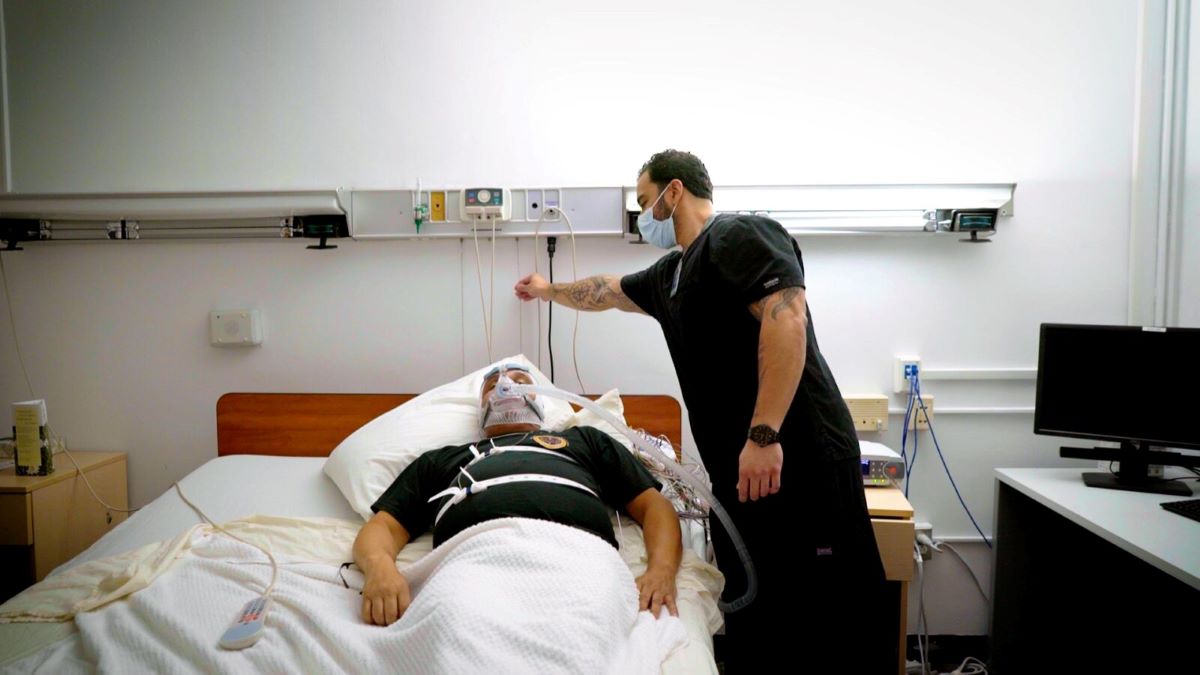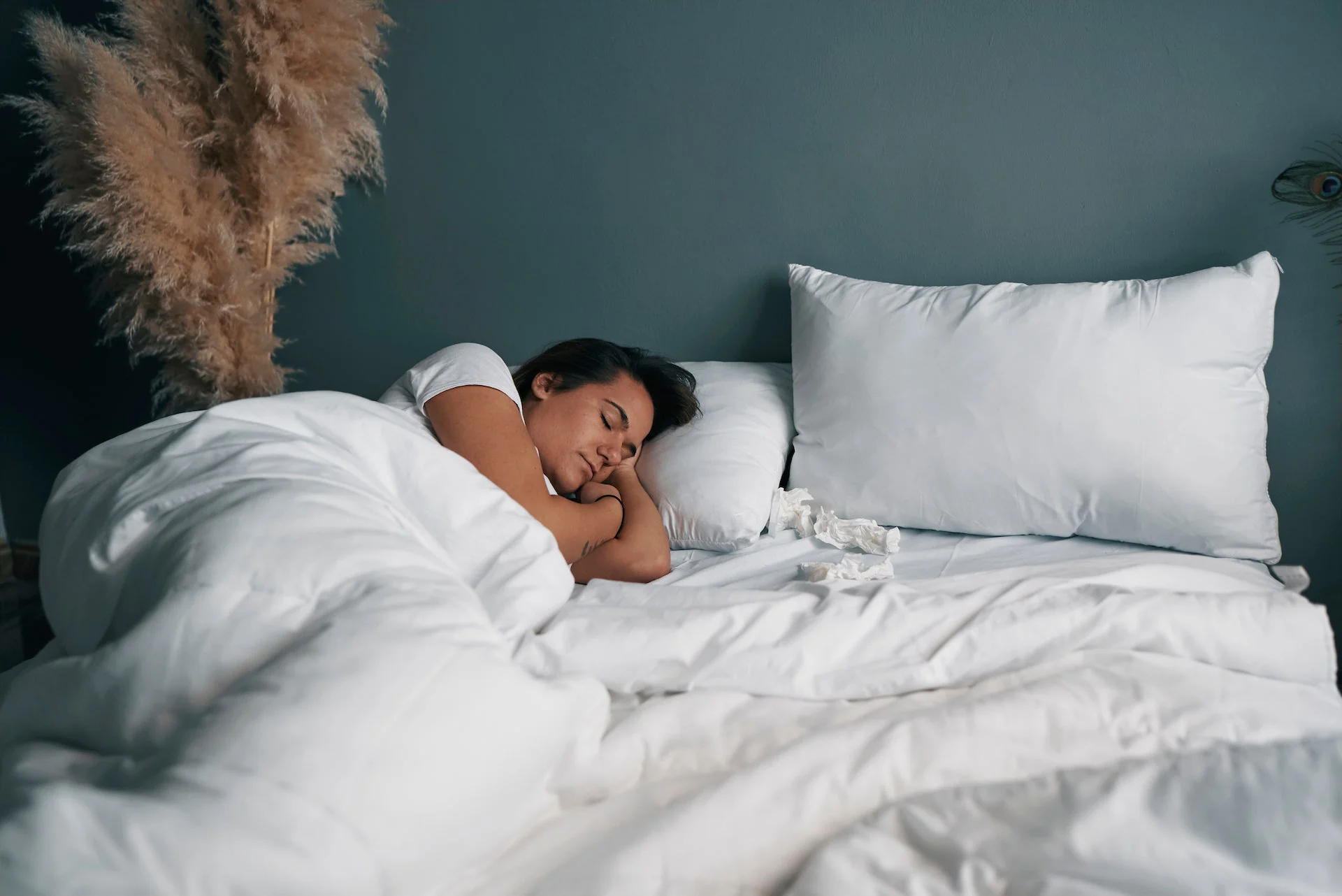Category: Sleep Apnea Test Brisbane
Bulk-Bill Sleep Study Brisbane: Affordable Options for Locals
What Are Bulk-Bill Sleep Studies and How Do They Work in Brisbane?
Bulk-bill sleep study Brisbane services provide you with direct billing to Medicare, eliminating upfront costs for diagnostic testing. When you receive a bulk-bill sleep study, the healthcare provider charges Medicare directly under the Medicare Benefits Schedule (MBS), meaning you pay nothing out-of-pocket for eligible services.
Home sleep study Brisbane options have transformed how sleep disorders are diagnosed by bringing testing directly to your bedroom. Here’s how it typically works:
- Equipment delivery: The necessary devices are brought to your home, along with easy-to-follow instructions on how to set them up.
- Non-invasive monitoring: These devices are designed to be non-intrusive, meaning they won’t disrupt your sleep. They will monitor important factors such as your breathing patterns, oxygen levels, and sleep position.
- Overnight recording: The actual testing takes place overnight while you sleep in your own comfortable environment.
- Equipment collection: The next day, the equipment is picked up for analysis of the collected data.
Understanding Eligibility for Medicare Bulk Billing
To qualify for Medicare bulk billing, certain clinical criteria must be met and proper referral pathways followed. This means that you need to have a referral from either your GP or a sleep specialist who has evaluated your symptoms using approved screening methods.
The Medicare Benefits Schedule provides coverage for diagnostic sleep studies as long as they adhere to established medical guidelines.
How Sleep Data is Analysed
Once the data has been collected, it is examined by certified sleep physicians who interpret the results remotely. This efficient process helps to reduce waiting times while still ensuring accurate diagnoses.
The Advantages of Bulk-Bill Sleep Studies
The definition of a bulk-bill sleep study includes comprehensive overnight monitoring without the hassle and cost associated with traditional in-laboratory testing. This makes it easier for more residents in Brisbane to get diagnosed with sleep disorders and seek treatment promptly, something that might not have been possible otherwise.
Who Qualifies for a Bulk-Billed Sleep Study in Brisbane?
Eligibility for bulk billing, which allows patients to access subsidised sleep studies, requires you to meet specific medical and administrative criteria. Your journey begins with obtaining a referral from your GP or a specialist such as a respiratory physician, cardiologist, or ENT surgeon. These healthcare professionals assess your symptoms and determine whether you require diagnostic testing for sleep disorders.
The Epworth Sleepiness Scale (ESS) serves as a primary screening tool to evaluate your daytime sleepiness levels. You’ll complete this questionnaire rating how likely you are to doze off in various situations, from watching television to sitting in traffic. Scores above 10 typically indicate excessive daytime sleepiness warranting further investigation.
Healthcare providers also utilise the OSA50 score criteria to assess your risk of obstructive sleep apnea. This screening tool evaluates factors including:
- Your neck circumference and BMI
- Age and gender demographics
- Presence of high blood pressure
- Snoring frequency and intensity
- Witnessed breathing interruptions during sleep
To qualify for the bulk-billed sleep study, you must demonstrate clinical symptoms such as loud snoring, breathing cessations, morning headaches, or excessive fatigue. Your referring doctor will document these symptoms alongside your screening scores to establish medical necessity. It’s important to note that private health insurance status doesn’t affect your eligibility – the assessment focuses purely on clinical need and Medicare guidelines.
Meeting these clinical thresholds ensures you receive appropriate diagnostic testing while maintaining the integrity of the bulk-billing system for those who genuinely require sleep disorder evaluation.
Which Providers Offer Bulk-Billed Sleep Studies in Brisbane?
Brisbane residents have access to several established sleep study providers Brisbane that facilitate bulk-billed diagnostic testing through strategic partnerships and Medicare-compliant services.
Air Liquide Healthcare stands as Australia’s largest facilitator of home sleep apnoea studies, operating an extensive network that covers Brisbane and surrounding areas. Their comprehensive approach includes partnerships with leading CPAP equipment manufacturers, ensuring patients receive integrated care from diagnosis through treatment initiation.
The company operates through multiple recognised brands including:
- SNORE Australia – specialising in sleep disorder diagnostics
- Healthy Sleep Solutions – focusing on therapeutic interventions
- Mycroft and Complete Care – providing comprehensive sleep medicine services
- Sleep Disorder Australia (SDCA) – offering specialised clinical support
ResMed stores Brisbane locations provide direct access to sleep technology and often coordinate with bulk-billing providers for seamless patient pathways. These facilities typically offer equipment demonstrations and initial consultations.
Sleep Solutions Australia operates several clinics across Brisbane, many offering extended hours to accommodate working patients. Their home-based study options eliminate the need for overnight hospital stays whilst maintaining clinical accuracy.
Nexus Healthcare provides additional coverage through their network of affiliated sleep specialists and diagnostic centres, ensuring patients can access bulk-billed services regardless of their location within the greater Brisbane area.
Many providers offer after-hours clinics and flexible appointment scheduling, recognising that sleep disorders often affect individuals with demanding work schedules who require convenient testing options.
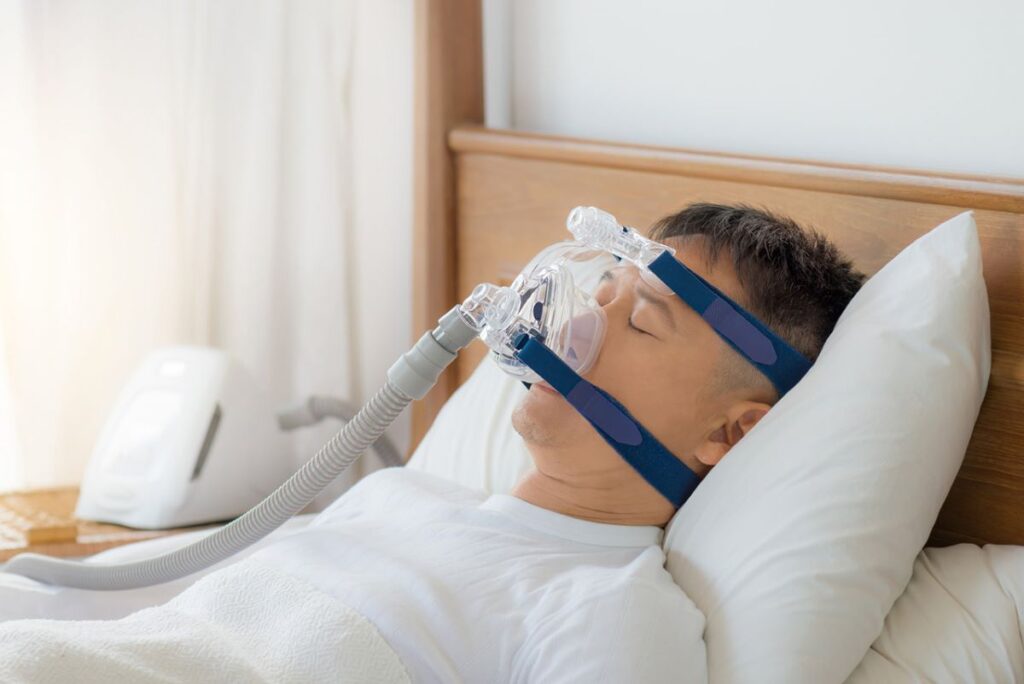
How Do Home Sleep Studies Benefit Patients Compared to In-Lab Studies?
Home sleep study benefits extend far beyond simple convenience, transforming how Brisbane residents access sleep disorder diagnosis. You can complete your assessment in your own bed, eliminating the anxiety and discomfort associated with sleeping in unfamiliar clinical environments. This familiar setting produces more accurate results as you maintain your regular sleep patterns and routines.
The non-invasive sleep testing technology used in home studies requires minimal equipment setup. You’ll receive a compact monitoring device that tracks:
- Breathing patterns and airflow
- Blood oxygen levels
- Heart rate variations
- Sleep position changes
- Chest and abdominal movement
Patient comfort sleep diagnosis becomes achievable without the wires, electrodes, and constant monitoring that characterise traditional sleep laboratories. You simply wear a small device overnight, allowing natural sleep cycles to occur without interruption from technicians or unfamiliar sounds.
Remote analysis by certified sleep physicians ensures diagnostic accuracy matches laboratory standards. Your overnight data transmits securely to qualified specialists who interpret results using the same clinical criteria applied in hospital settings. This process maintains diagnostic integrity while reducing costs significantly.
The technology captures essential sleep metrics without requiring expensive overnight facility stays. You avoid scheduling conflicts with work or family commitments, as home studies accommodate your preferred timing. Brisbane residents particularly benefit from this flexibility, accessing professional sleep disorder assessment without the traditional barriers of location, cost, or clinical availability constraints.
See Also : Sleep Apnea Test Adelaide: Early Diagnosis for Better Health
What Are the Steps in the Patient Pathway for Diagnosing and Managing Obstructive Sleep Apnea (OSA)?
The OSA diagnosis pathway in Brisbane follows a structured approach that ensures patients receive comprehensive care from initial assessment through long-term management. Your journey begins when your GP or specialist identifies potential sleep apnea symptoms and provides a referral for testing.
The Complete Patient Journey
Step 1: Initial Assessment and Home Study
You’ll receive a home sleep study device that monitors your breathing patterns, oxygen levels, and sleep quality overnight. This non-invasive approach eliminates the need for hospital stays whilst providing accurate diagnostic data.
Step 2: Results Analysis and Diagnosis
Certified sleep physicians analyse your study results remotely, determining the severity of your OSA and recommending appropriate treatment options based on clinical findings.
Step 3: Treatment Initiation
Upon diagnosis, CPAP therapy initiation Brisbane services connect you with appropriate equipment and initial setup support. Local providers like Air Liquide Healthcare facilitate this process through partnerships with major CPAP manufacturers.
Step 4: Titration and Optimisation
CPAP titration programs help determine your optimal pressure settings through either additional home studies or auto-titrating devices that adjust throughout the night.
Step 5: Ongoing Support and Monitoring
Therapy management sleep apnea includes regular follow-ups, equipment maintenance guidance, and continuous support from sleep coaches. This ensures your treatment remains effective and comfortable long-term, with adjustments made as needed to maintain optimal therapeutic outcomes.
How Does Medicare Support Bulk-Bill Sleep Studies and CPAP Therapy Costs?
Medicare coverage sleep studies operates through the Medicare Benefits Schedule (MBS), which provides specific item numbers for sleep disorder diagnostic tests. The MBS guidelines diagnostic tests require patients to meet clinical criteria and obtain appropriate referrals from qualified medical practitioners. You can access bulk-billed sleep studies when your GP or specialist determines you meet the necessary medical requirements outlined in these guidelines.
The diagnostic phase receives comprehensive Medicare support, covering home-based sleep monitoring equipment and professional interpretation by certified sleep physicians. This means you won’t face out-of-pocket expenses for the initial assessment when providers offer bulk-billing services.
Private health insurance CPAP coverage varies significantly between insurers and policy types. Many private health funds include CPAP equipment and ongoing therapy costs under their extras or hospital cover packages. You should verify your specific policy details, as coverage levels differ:
- Gold-tier hospital cover typically includes comprehensive sleep disorder benefits
- Extras packages may cover CPAP equipment rental or purchase
- Waiting periods often apply before you can claim benefits
When you don’t qualify for bulk-billing, several alternatives exist. Some providers offer payment plans or reduced-fee consultations for eligible patients. Air Liquide Healthcare’s network partners frequently provide flexible payment options, ensuring access to essential sleep disorder services …
Read MoreSleep Apnea Testing in Brisbane: Your Complete Guide
Sleep apnea is a common sleep disorder that affects many people in Brisbane and around the world. If left untreated, it can lead to serious health complications. In this complete guide, we will explore everything you need to know about sleep apnea testing in Brisbane, from understanding the condition itself to the different types of tests available and how to interpret the results.
Understanding Sleep Apnea
What is Sleep Apnea?
Sleep apnea is a sleep disorder characterized by pauses in breathing or instances of shallow breathing during sleep. These interruptions, known as apneas, can last for a few seconds to minutes and can occur multiple times throughout the night. The most common type of sleep apnea is obstructive sleep apnea (OSA), where the airway becomes blocked or collapses during sleep, causing the individual to momentarily stop breathing.
In conclusion, sleep apnea is a serious sleep disorder that requires diagnosis and appropriate treatment. By understanding the condition, recognizing its symptoms, and undergoing sleep apnea test Brisbane can take control of their health and improve their quality of life. If you suspect you or your loved ones have sleep apnea, consult a healthcare professional who specializes in sleep medicine to guide you through the testing process and develop an effective treatment plan.
It is important to note that sleep apnea can affect individuals of all ages, including children. In pediatric cases, sleep apnea may be caused by enlarged tonsils or adenoids, leading to breathing difficulties during sleep. Identifying and addressing sleep apnea in children is crucial for their overall health and development.
Symptoms and Risks of Sleep Apnea
Recognizing the symptoms of sleep apnea is crucial for early diagnosis and treatment. Common symptoms include loud snoring, excessive daytime sleepiness, morning headaches, difficulty concentrating, and irritability. Untreated sleep apnea can lead to serious health risks such as high blood pressure, heart disease, stroke, and even diabetes.
Individuals with untreated sleep apnea may also experience nocturia, which is the frequent need to urinate during the night. This symptom can disrupt sleep patterns and contribute to feelings of fatigue and daytime drowsiness. Additionally, untreated sleep apnea has been linked to an increased risk of developing mood disorders such as depression and anxiety.

The Importance of Sleep Apnea Testing
Health Implications of Untreated Sleep Apnea
Undiagnosed and untreated sleep apnea can significantly impact your overall health and quality of life. It can contribute to the development or worsening of various health conditions, including hypertension, cardiovascular disease, and metabolic disorders. By undergoing sleep apnea testing, you can identify the presence and severity of the condition, allowing for appropriate treatment and management.
Sleep apnea is a common but serious sleep disorder that affects millions of people worldwide. It is characterized by pauses in breathing or shallow breaths during sleep, leading to disruptions in the normal sleep cycle. These interruptions can result in poor sleep quality, daytime fatigue, and increased risk of accidents due to drowsiness.
Read more at: Discovering Your Sleep Type The Benefits of a Sleep Type Test
The Role of Sleep Apnea Testing in Diagnosis
Sleep apnea testing plays a crucial role in the diagnosis of this sleep disorder. It helps healthcare professionals determine the presence and severity of sleep apnea, as well as identify any underlying causes or contributing factors. Through proper diagnosis, healthcare providers can develop a personalized treatment plan tailored to your specific needs.
There are different methods of sleep apnea testing available, ranging from in-lab polysomnography to home sleep apnea tests. These tests monitor various parameters during sleep, such as breathing patterns, oxygen levels, and heart rate, to assess the presence and severity of sleep apnea. Based on the results of these tests, healthcare providers can recommend appropriate treatment options, which may include continuous positive airway pressure (CPAP) therapy, oral appliances, or lifestyle modifications.
Different Types of Sleep Apnea Tests
Home Sleep Tests
Home sleep tests are convenient and cost-effective options for diagnosing sleep apnea. They involve using portable devices that measure breathing patterns, oxygen levels, and other parameters while you sleep in the comfort of your own home. These tests are typically recommended for individuals with a high suspicion of mild to moderate sleep apnea. Learn more about oxygen on https://www.utoledo.edu/nsm/ic/elements/oxygen.html
One of the advantages of home sleep tests is that they allow you to sleep in your usual environment, which may provide a more accurate reflection of your typical sleep patterns. Additionally, the data collected during a home sleep test can help healthcare providers tailor treatment plans to suit your specific needs and lifestyle.
In-Lab Sleep Tests
In-lab sleep tests, also known as polysomnography, are conducted in a sleep laboratory or clinic. During this test, you will stay overnight and be monitored by a team of healthcare professionals. Various measurements, including brain activity, breathing patterns, heart rate, and oxygen levels, will be recorded to evaluate the quality of your sleep and detect any potential sleep disorders.
One key benefit of in-lab sleep tests is the comprehensive nature of the monitoring process. The presence of trained technicians allows for real-time adjustments and troubleshooting, ensuring the accuracy and reliability of the data collected. Moreover, conducting the test in a controlled environment enables healthcare providers to observe your sleep behavior closely, leading to a more detailed analysis and diagnosis.
Preparing for a Sleep Apnea Test
When preparing for a sleep apnea test, it is important to understand the significance of this diagnostic procedure. Sleep apnea is a common sleep disorder characterized by pauses in breathing or shallow breaths during sleep. These interruptions can lead to fragmented sleep, daytime fatigue, and other health issues. By undergoing a sleep apnea test, healthcare providers can assess the severity of your condition and recommend appropriate treatment options.
What to Expect During the Test
Before undergoing a sleep apnea test, it is essential to know what to expect. Depending on the type of test, you may need to make certain preparations, such as avoiding caffeine and alcohol, ensuring a comfortable sleeping environment, and following any specific instructions provided by your healthcare provider. During the test, electrodes and sensors will be applied to monitor various aspects of your sleep.
The electrodes will record data such as brain waves, eye movements, heart rate, and muscle activity during different stages of sleep. These measurements help healthcare providers identify patterns of disrupted breathing and assess the quality of your sleep. While the idea of being monitored during sleep may seem daunting, it is a crucial step in diagnosing and managing sleep apnea effectively.
Tips for the Night Before Your Test
To ensure accurate results, it is crucial to prepare yourself physically and mentally for the sleep apnea test. Some tips for the night before the test include maintaining a regular sleep schedule, avoiding heavy meals and strenuous exercise, creating a relaxing bedtime routine, and minimizing external distractions in your sleep environment.
Additionally, it is advisable to inform your healthcare provider about any medications you are taking and any pre-existing conditions that may affect your sleep patterns. By being proactive and following these recommendations, you can optimize the testing process and contribute to a more comprehensive evaluation of your sleep health.

Interpreting Your Sleep Apnea Test Results
Understanding Your Test Scores
Once your sleep apnea test is complete, your healthcare provider will analyze the collected data and provide an interpretation of the results. The test scores will determine the presence and severity of sleep apnea, categorizing it as mild, moderate, or severe. Understanding your test scores is crucial in formulating an appropriate treatment plan and determining the next steps in managing your sleep apnea.
When looking at your test scores, it’s essential to pay attention to various factors such as the number of apnea events per hour, oxygen levels during sleep, and the overall quality of your sleep. These details can give valuable insights into the impact of sleep apnea on your health and well-being. By understanding the nuances of your test scores, you and your healthcare provider can tailor a treatment plan that addresses your specific needs and improves your sleep quality.
Next Steps After Diagnosis
After receiving a sleep apnea diagnosis, your healthcare provider will discuss treatment options with you. These may include lifestyle modifications, continuous positive airway pressure (CPAP) therapy, oral appliances, or surgery, depending on the severity of your condition. It is important to follow the recommended treatment plan to improve your sleep quality and overall health.
Furthermore, lifestyle changes such as maintaining a healthy weight, avoiding alcohol and sedatives before bedtime, and sleeping on your side instead of your back can also help alleviate symptoms of sleep apnea. These adjustments, combined with medical interventions, can significantly enhance the effectiveness of your treatment plan and enhance your quality of life. Click here to learn more about interventions.
… Read MoreRecent Posts
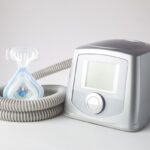 Ultimate Guide to Choosing an Oxygen Concentrator in Australia (2026)ntroduction to Modern Oxygen Therapy For many Australians living with chronic respiratory conditions, maintaining an active lifestyle in cities like Sydney requires more than just medical advice—it requires the right technology. An oxygen concentrator is […]
Ultimate Guide to Choosing an Oxygen Concentrator in Australia (2026)ntroduction to Modern Oxygen Therapy For many Australians living with chronic respiratory conditions, maintaining an active lifestyle in cities like Sydney requires more than just medical advice—it requires the right technology. An oxygen concentrator is […]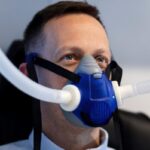 The Best CPAP Mask Options for New Users and What Makes Them ComfortableSleep apnea disrupts breathing during sleep, causing repeated pauses that prevent restful sleep and strain the cardiovascular system. CPAP therapy delivers continuous pressurized air through a mask, keeping airways open throughout the night and enabling […]
The Best CPAP Mask Options for New Users and What Makes Them ComfortableSleep apnea disrupts breathing during sleep, causing repeated pauses that prevent restful sleep and strain the cardiovascular system. CPAP therapy delivers continuous pressurized air through a mask, keeping airways open throughout the night and enabling […] Oxygen Machine for Home Use: A Complete Guide for First-Time BuyersWhat Is an Oxygen Machine and How Does It Work? An oxygen machine for home use, commonly known as an oxygen concentrator, is a medical device that delivers concentrated oxygen to individuals with respiratory conditions. These respiratory therapy devices […]
Oxygen Machine for Home Use: A Complete Guide for First-Time BuyersWhat Is an Oxygen Machine and How Does It Work? An oxygen machine for home use, commonly known as an oxygen concentrator, is a medical device that delivers concentrated oxygen to individuals with respiratory conditions. These respiratory therapy devices […]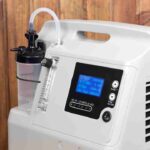 Medical Oxygen at Home: Essential Information on Oxygen Tanks, Machines, and TherapiesIntroduction For individuals with chronic respiratory conditions, such as COPD, asthma, or emphysema, medical oxygen therapy at home is often a critical part of maintaining health and improving quality of life. Whether you need an oxygen machine for […]
Medical Oxygen at Home: Essential Information on Oxygen Tanks, Machines, and TherapiesIntroduction For individuals with chronic respiratory conditions, such as COPD, asthma, or emphysema, medical oxygen therapy at home is often a critical part of maintaining health and improving quality of life. Whether you need an oxygen machine for […]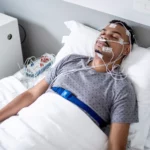 Understanding Sleep Apnea: Causes, Symptoms, and Effective TreatmentsSleep is one of the most vital pillars of good health, but for millions of people, restful sleep is harder to achieve than it should be. One of the most common reasons for poor sleep quality is sleep apnea, a potentially serious sleep disorder that often […]
Understanding Sleep Apnea: Causes, Symptoms, and Effective TreatmentsSleep is one of the most vital pillars of good health, but for millions of people, restful sleep is harder to achieve than it should be. One of the most common reasons for poor sleep quality is sleep apnea, a potentially serious sleep disorder that often […]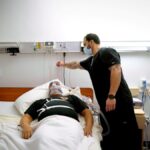 Bulk-Bill Sleep Study Brisbane: Affordable Options for LocalsWhat Are Bulk-Bill Sleep Studies and How Do They Work in Brisbane? Bulk-bill sleep study Brisbane services provide you with direct billing to Medicare, eliminating upfront costs for diagnostic testing. When you receive a bulk-bill sleep study, the […]
Bulk-Bill Sleep Study Brisbane: Affordable Options for LocalsWhat Are Bulk-Bill Sleep Studies and How Do They Work in Brisbane? Bulk-bill sleep study Brisbane services provide you with direct billing to Medicare, eliminating upfront costs for diagnostic testing. When you receive a bulk-bill sleep study, the […]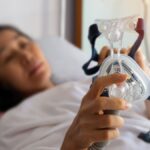 Sleep Apnea Test Adelaide: Early Diagnosis for Better HealthWhat Is Sleep Apnea and Why Is Early Diagnosis Important? Sleep apnea is a serious sleep disorder where your breathing repeatedly stops and starts during sleep. This condition affects millions of people worldwide, yet many remain undiagnosed, missing […]
Sleep Apnea Test Adelaide: Early Diagnosis for Better HealthWhat Is Sleep Apnea and Why Is Early Diagnosis Important? Sleep apnea is a serious sleep disorder where your breathing repeatedly stops and starts during sleep. This condition affects millions of people worldwide, yet many remain undiagnosed, missing […]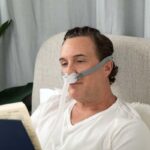 Sleep Apnea Explained: Causes, Symptoms, and Treatment OptionsIntroduction: Why Sleep Apnea Deserves Your Attention Picture this: you go to bed at a reasonable hour, expecting a full night’s rest, yet you wake up feeling drained, irritable, and foggy-headed. It’s not just “bad sleep” — it could be sleep apnea, a […]
Sleep Apnea Explained: Causes, Symptoms, and Treatment OptionsIntroduction: Why Sleep Apnea Deserves Your Attention Picture this: you go to bed at a reasonable hour, expecting a full night’s rest, yet you wake up feeling drained, irritable, and foggy-headed. It’s not just “bad sleep” — it could be sleep apnea, a […]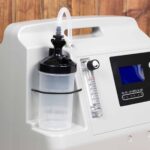 Top 5 Online Stores to Purchase a Portable Oxygen Concentrator MachinePortable oxygen concentrators (POCs) have become essential devices for individuals with respiratory conditions, providing a convenient and reliable source of oxygen. With the rise of e-commerce, purchasing a POC has never been easier. However, selecting […]
Top 5 Online Stores to Purchase a Portable Oxygen Concentrator MachinePortable oxygen concentrators (POCs) have become essential devices for individuals with respiratory conditions, providing a convenient and reliable source of oxygen. With the rise of e-commerce, purchasing a POC has never been easier. However, selecting […] Portable Oxygen Concentrator Australia: Features and BenefitsIn recent years, the demand for portable oxygen concentrators (POCs) has surged in Australia, largely due to the increasing prevalence of respiratory conditions and the need for greater mobility among patients. These devices provide a continuous supply […]
Portable Oxygen Concentrator Australia: Features and BenefitsIn recent years, the demand for portable oxygen concentrators (POCs) has surged in Australia, largely due to the increasing prevalence of respiratory conditions and the need for greater mobility among patients. These devices provide a continuous supply […]

